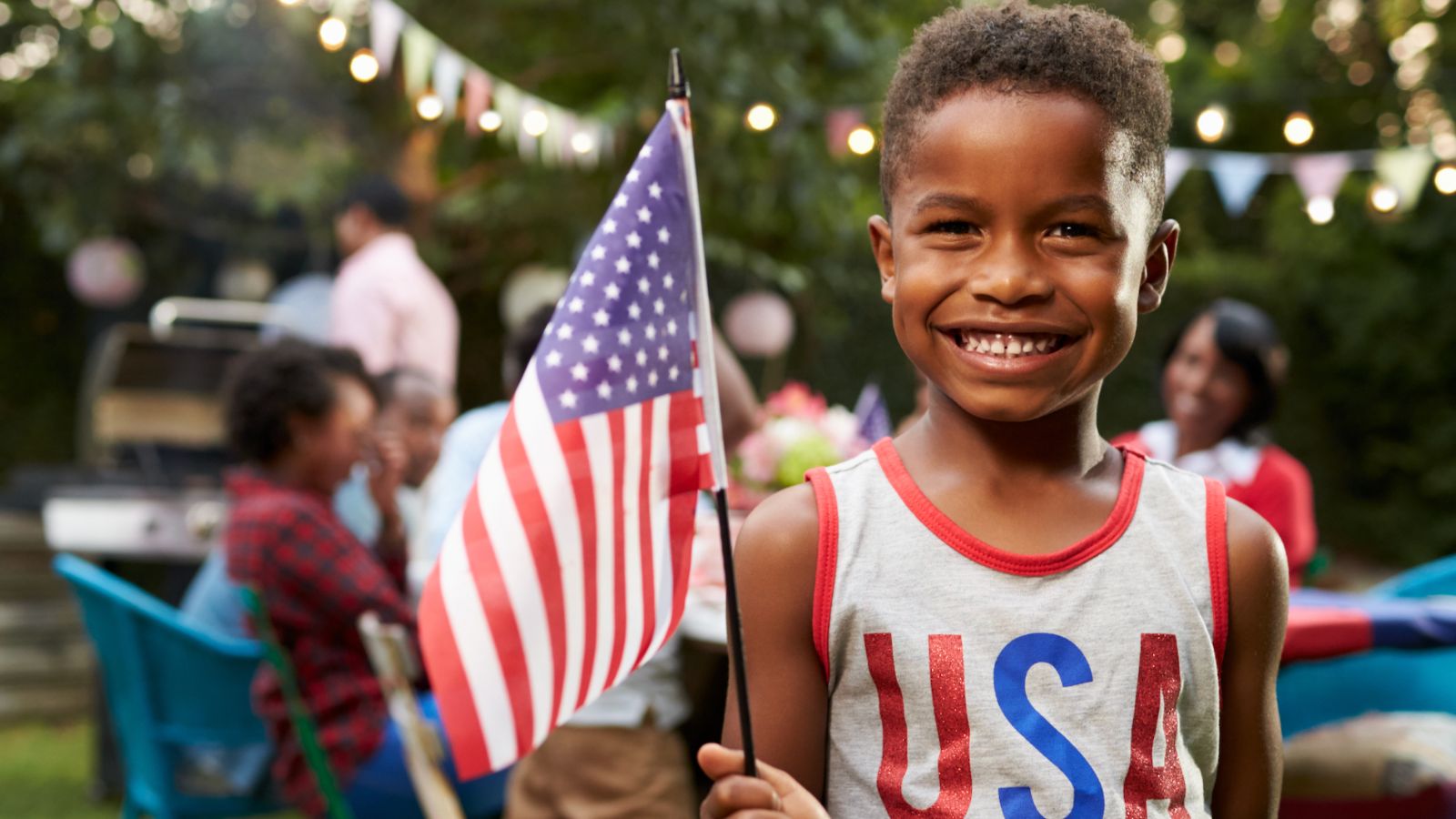While America’s people are as varied as its landscape, being raised in the same country (even a huge, diverse one) promotes certain cultural behaviors and national habits. Such quirks can unknowingly scream ‘I’m American,’ especially when abroad or in the company of foreigners. This article describes the 18 telltale signs that someone comes from the U.S.
Generous Tips

In many countries, tipping is already factored into the bill or isn’t customary, except perhaps in the case of outstanding service. So, anyone who tips 15–20% or more, especially for sub-standard service, is likely to be from the U.S. Even if your accent didn’t give you away, the hefty tip surely will, and it’s a trait foreign waitstaff appreciate greatly.
Saying “Bless You”

This well-meaning phrase is a cultural norm in the U.S., even among atheists. MIT asserts that the saying originated in medieval England when a sneeze was the first sign of deadly ‘bubonic plague,’ and it acted as a superstitious wish for good health. Nowadays, Brits still use it but not as extensively as Americans, who often utter it automatically without thinking.
Large Beverages

Supersized drinks are practically a national symbol in the U.S., but not all cultures are familiar with large cups of coffee, fountain drinks, or oversized iced teas ‘to go.’ Requesting a “big gulp” or asking for the largest cup size available and carrying it around with you can indicate to non-Americans where you come from—a land where portion sizes match our intense thirst!
The Direct Approach

Americans are known for communicating directly and with fewer social limitations and subtleties than other cultures are used to. Being straightforward, direct, and open can indicate to outsiders that you’re from the U.S. While it may come across as blunt or rude, being direct certainly has benefits, leaving less room for misunderstandings or misinterpretations.
Casual Dress Code

U.S. fashion culture leans towards casual attire, even in semi-formal settings like workplaces and formal events. The common everyday staples are clothing items such as jeans, t-shirts, and sneakers. This can immediately indicate to non-Americans that you come from a culture that doesn’t insist on suits, dress shirts, and shiny shoes in places like museums and restaurants.
A Big Smile

The Atlantic ascertains that Americans, from a country of immigrants with a mix of languages, rely more heavily on a friendly smile than other countries do. A big, genuine smile (even for a stranger) can make you stand out abroad and label you as American even before you open your mouth. In other cultures, a more reserved or demure greeting may be the norm.
Brand Awareness

Americans often reference popular culture, celebrities, or specific brands in conversation because they were raised in a place where the media, culture, and government place a high value on success and fame. People from other countries might not recognize the names of tech giants or fashion designers, but they may identify you as an American nonetheless!
Individuality

In the U.S., standing out from the crowd is considered a good thing. Maybe it originates from our colonial roots, when life was tough and competition was rife?! Our culture celebrates individualism and self-expression, which can be apparent in the choices Americans make, from clothing and hairstyles to hobbies and careers. In other places, ‘fitting in’ can be more universally prioritized.
Openness

Americans came up with the expression TMI (too much information) for a reason—they can be surprisingly candid. Many people from the U.S. feel comfortable talking about themselves with strangers and frequently start conversations quickly or ask questions that others may find too personal or familiar. Elsewhere, this behavior can be seen as rude or indiscreet.
Celebration of Holidays

Excessive enthusiasm and effort for holiday celebrations are hallmarks of the American people and can make it easy to spot one abroad. Dressing head to toe in red, white, and blue on July 4th or spending weeks on an elaborate Halloween outfit aren’t unusual behaviors, but this celebratory spirit can give away your national identity, especially during major U.S. holidays.
Saying “Have a Nice Day”

This generic American farewell isn’t the norm everywhere, especially in reserved cultures where specific greetings that refer to the time of day, weather, or a person’s health may be preferred. However, Anglotopia claims the phrase is gaining popularity in the UK. Still, if you deliver the endearment in a strong, sweetly tuned American accent, there’ll be no doubt where you’re from!
Planning Ahead

We Americans have a penchant for schedules and itineraries, particularly while on vacation or in the workplace. A love of planning and producing detailed schedules can single you out as an American in places where a more relaxed attitude to time management is typical. Foreigners from other cultures may find such a disciplined approach amusing or too regimented!
Financial Discussions

Americans are often comfortable talking about their finances, including salaries, loans, mortgages, and how much things cost. Be aware that this type of financial transparency is not always the norm elsewhere, and non-Americans may become offended or suspicious if you ask questions about their economic situation, earnings, or recent purchases.
Love of Fast Food

No, not every American likes fast food or is afraid to try foreign food, but familiar food outlets like McDonald’s and Burger King can be beacons to American tourists who are hungry and unsure in a new city. Statistically, Americans indulge in fast food more frequently than other cultures and often seek out well-known fast food chains when traveling abroad.
Obsessed with Efficiency

American city dwellers, in particular, have intensely fast-paced and busy lives. They appreciate finding the most efficient option or method and often value decent shortcuts. Anyone who shows a clear preference for time-saving conveniences like drive-thru lanes, self-checkouts, and direct transportation may be inadvertently identifying their nationality!
Supersize Everything

The stereotype that everything is bigger in the U.S. doesn’t come from nothing. Business Insider reports that portion sizes are up to 100% larger in the U.S. than in the UK, even within the same fast food chains. Are you asking for the largest meal portion or the most gigantic cup size? In that case, you may be unwittingly signaling your American-ness to foreigners.
Small Talk

Americans are comfortable with talking to strangers and often strike up casual conversations about innocuous topics such as the weather, current events, or their personal preferences. Such harmless chit-chat is seen as an icebreaker, but other cultures may be awkward or suspicious if you try to talk to them on public transportation or when waiting in lines. It’s definitely an American trait!
Passionate About Sports

For many American people, their favorite sport is far more than just a game; it commands respect and loyalty! Sports like football, baseball, ice hockey, and basketball all have big followings of die-hard fans who enthusiastically cheer on their favorite team at every opportunity. If you express this strong passion abroad, you may highlight where you come from.
Read More: 18 Reasons Why No One Is Interested in Working Anymore

The concept of traditional employment has taken a back seat in recent times with changes in economic and social factors, as well as individual preferences. Traditional jobs have also evolved, and many people don’t feel the need to take this route anymore. These are 18 reasons why no one is interested in working anymore.
18 Reasons Why No One Is Interested in Working Anymore
17 States Americans No Longer Want to Live In

America is constantly changing, and within it, so are its states. Some have new laws that residents don’t agree with, while others have increasing rates of unemployment or areas of extreme poverty. These aspects make it difficult for a person to stay in their home state. Here are 17 states that Americans are deciding to reconsider.
17 States Americans No Longer Want to Live In
18 Adult Traits That Are Frequently Traced Back to Difficult Childhoods

If an adult had a difficult childhood, they’re more likely to display some traits that those with a more stable upbringing might not develop. In this article, you’ll discover 18 of those traits.
18 Adult Traits That Are Frequently Traced Back to Difficult Childhoods
17 Most Friendly Wild Animals in the World

Are you an animal lover looking to learn more about the curious creatures that inhabit our planet alongside us? Discover the amicable side of the animal kingdom. Meet 17 of the world’s most sociable wild animals, from playful sea creatures to gentle land mammals.
17 Most Friendly Wild Animals in the World
17 Phrases Confident People Use to Stand Up For Themselves

Confidence is a healthy and attractive trait that helps us stand firm in our values and set healthy boundaries. We can always become more confident, and learning the right ways to stand up for yourself is a great way to start. Here are 17 phrases you can use to do so.

